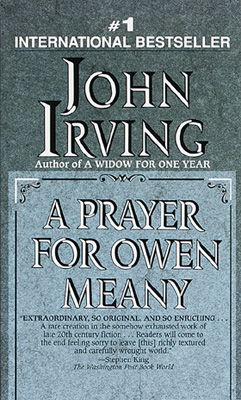Jill and I sleep under an old musty featherbed with the baby, little Jenny, between us. It’s warm there.
The gray light through the plastic sheeting sealing out the worst of the drafts from the old badly fitted windows, tells us that the day is overcast. When we get out of bed, we know the old wood burning furnace in the cellar is out. The sweat freezes to ice drops on our skin. Even when it works, our breath mists. We bundle quickly into layers of wool and cotton over the long underwear that we've slept in. Socks and boots and mittens go on right away before the warmth of the bed fades.
I unravel a wire coat hanger and stab through the thin ice layer in the toilet bowl. Unzipping, I pee, idly trying to melt the floating chunks of ice and thinking that the man who built this house must have enjoyed hardship; the bathroom is as far from the single heating duct as possible. I hear the thunking of wood as Jill feeds the wood stove in the kitchen. Later when the furnace is going, we’ll run water through the copper coils inside it and try to wash up.
There’s still three feet of snow on the ground from the last blizzard. The drift against the side of the house covers the attic window. A week ago I opened the kitchen door, and there was just a flat cold white imprint of the door facing me. We had to tunnel our way out, shoveling the snow into stew pots and buckets, then melting it on the stove. No snowplows have come by. The town always does the dirt roads last. The power and phone lines won’t be fixed until then.
I go down to the cellar and open the furnace. There are just enough embers to get it started again. I rake them into a pile and stack a pyramid of kindling and some small splits of maple and oak over them. I twist some paper into a spill and push it into a gap then blow until the paper catches. When the kindling starts to char and crackle, I close the door and go back up to the kitchen.
The room is starting to warm up. Jill has the stove lit. I warm my hands over it and look into the firebox. A few sticks of kindling are in the bottom with some maple on top. The kindling is burning from the middle forcing the sap out the ends. It has frozen into icicles only inches from the fire.
I go out to the woodshed. I still have a couple of cords of oak, maple and birch, but the cranky furnace doesn’t light easily. I need some softwood kindling to get it going. I bring an armload of wood to the kitchen. Jill’s started some oatmeal and pulled the table close to the heat. Jenny’s wrapped up in so many blankets that she looks like a fuzzy blue ball. Jill pokes the baby bottle into a gap. From the slurping sounds, I figure she’s found the right spot. I go back to the woodshed and open the chute to the cellar. I throw splits and logs down the hole for a solid ten minutes. There's not much room down there; just enough for the wood for a day or so of heat. I pull the cover over the chute and go back inside where Jill is still feeding the baby. It's warm enough now for me to take my jacket off.
I go over to stir the oatmeal. I ladle out some for Jill and sprinkle sugar on it. What little milk the old cows are producing is for the baby. I ladle out another bowl for me, drop a lump of butter into it and reach for the salt and pepper.
“I’m going back to the wood lot and cut down a pine or two,” I say. “Maybe I’ll bring us back a Christmas tree.”
“Do you have to go?” Jill asks.
“Looks like snow again and we need the kindling.”
“Taking the tractor?”
“No gas ... I’ll take Bob.”
“Be careful.”
I finish my food, zip into my coat and stuff gloves in my pocket. I head out to the barn, walking carefully, trying not to break through the icy crust.
Out in the barn are the three cows and Bob, an old gray swayback farm horse. It’s warm in here. The bales of hay above insulate the stalls below and the animals put out a lot of heat. If worst comes to worst, we could move into the barn for a while. I fork some hay into the feeding bins for the cows and sprinkle some oats over it. Bob gets more oats. By the way he moves I see that he knows there's work today.
I get the harness and sit on it to warm it up while I wait for; Bob to finish. The cows look over at me placidly from time to time. I listen to the water trickling into the cistern of the gravity pump from the spring further up the hill, and thank the foresight that made me bury the feed line deep enough to keep it from freezing. I hear a gurgle and know that Jill is washing the dishes.
I fill the buckets and hang them on the nails where the cows can get to them. I give another to Bob who snorts briefly. When he's done, I put the harness on him, and walk him out. I hitch him to the the sledge and let the reins hang free as I go back inside for the twitching hooks on their chains, the buck saw and my axe. There's no gas for the chainsaw so this will have to be done the hard way.
Back outside, it has started to snow. Bob has broken the sledge free from the ice, and started trudging along the fence to the woodlot. The sledge is heavy and packs down the snow. I catch up and dump the hooks, chains, and saw onto its platform, then walk behind on the compacted snow. Bob has the worst part of the job, but there's not much I can do about it. He knows where to go, so I let him make a path for me. We start across the back pasture.
The wind kicks up and the loose snow starts to swirl. It gets up my coat sleeves and down my neck. I pull up my hood and pull the drawstrings to cover most of my face. It gets heavier. Now I can’t see the house or even the fence posts anymore. I can’t tell how far we’ve gotten. Suddenly Bob’s hooves clatter on stone. We’re at the rock ledge near the spring.
Three steps later I hit a patch of ice and sprawl backward.
Lying on my back I feel the pain in my right ankle. A sprain? Please God, don’t let it be broken. I roll over and get the good foot under me. I flail my arms for balance and use the butt of the axe handle to get up. I try putting my right foot down. It hurts like hell, but it’ll bear my weight.
I can’t see Bob, but I hear his harness jingling a short distance ahead. I limp along the rut in the snow using the axe handle as a cane. He has stopped near a small stand of evergreens. I tie him up and choose two of the trees, a pine about 9 inches across and a spruce near 12. My ankle is killing me. I can’t get a good stance with the buck saw, so I just use the axe.
I take down the spruce first. It comes down sweet as anything. I sit on an old stump to rest my ankle. The top of it will make a nice Christmas tree. I wrap a short length of chain around the bases of two of the large lower limbs, jam the sharp tips of the twitching hooks into the the wood and set them with a sharp blow from the poll of the axe. Then I unhook the sledge from Bob's harness and clip on the chains. I leave the axe by the stump, sling the saw over my shoulder and we head back to the woodshed, where I knock the hooks loose. The throbbing in my ankle is still bothering me, but I guess I'll be okay.
I take Bob back to the barn to warm up. Then I go to the woodshed and saw off the top four feet of the spruce and hammer an X of two by fours onto the base to act as a stand. It doesn't want to go through the door, but I get it in in a shower of needles and clumps of snow. The house is warmer now. Jill and Jenny watch as I yank the Christmas tree through the door to the living room and set it up. on the wooden X.
I peel off my gloves and jacket. Jill puts Jenny in the crib where she lies quietly babbling to herself, then pours me a tin mug of coffee. I sit at the kitchen table warming my hands around it.
"Are you done?" she asks.
"Not yet ... there's one more to go."
She kisses me, and unbuttoning her thick flannel shirt, takes my hands from around the mug and puts them on her warm bare flesh under her arms, and holds them there tightly to warm them. I lean my forehead on her breasts. After a few moments she releases my hands and, stepping back, buttons her shirt.
"Just take it easy, will you." she says.
"Jill ... I'm sorry I got you into th ..."
"Hush," she says, "We'll make it."
The snow has half buried the sledge when we get back to the woodlot. About 25 feet up the pine there’s a big black crow, hawing down at me from a shattered old branch. I pull the axe free from the stump of the spruce and smack its poll axe against the trunk of the pine and the bird drops out of the tree. I think he’s going to hit the ground but at the last minute, out flap the wings and he’s off, deeper into the woods.
Bob stands placidly waiting for the next load. It feels colder. I just want to get this over with and get back home.
I make the first cut. As the notch gets deeper I can see some rot. That should bring it down easier. My foot hurts, I’m cold, and I’m lonely. I move to the other side and start the felling cut. One chop, two . . . I hear a crackling sound. I back off from the tree fast. You never know.
My ankle twists under me and again I land on my back. The tree is falling towards me. The crow’s perch, the shattered branch points right at my heart.




